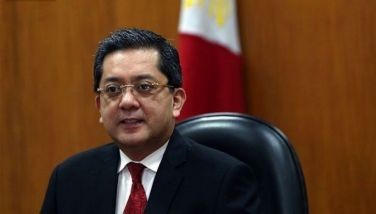Freedom of speech not absolute – CHR
MANILA, Philippines - Freedom of speech and expression is not absolute.
The Commission on Human Rights (CHR) has reminded incoming president Rodrigo Duterte about this after he invoked freedom of speech in the remark he made during the campaign regarding an Australian missionary who was raped and killed.
In its resolution on the complaint filed against Duterte by a women’s group before the May 9 elections, the CHR said the right to free speech and expression has its limits, based on both domestic and international law.
“Under Article 19 of the International Covenant on Civil and Political Rights, to which the Philippines is a state-party, the freedom of expression carries restrictions, such as respect for the rights or reputations of others, national security, public order, public health and public morals,” it said.
Duterte on Wednesday slammed the CHR for saying that he had violated a law and told officials of the agency to “shut up.”
Duterte said the CHR was naive and too simplistic when it made a big deal about his narration of an event.
“(CHR is) wasting the money of the Filipino people. Tell them to shut up,” Duterte said.
Duterte explained that he was narrating an event.
“You cannot prevent me from talking. I am exercising my right to free speech,” he added.
Duterte also called CHR chairperson Chito Gascon “an idiot.”
“That idiot is nitpicking. I told already in public how it happened. Then (he keeps) on issuing a statement. Here I am, I’m about to enter the presidency. What do you want?” he said.
“If he (Gascon) wants, I can go to his office. If he is agreeable, I can go to his office,” he added.
Citing various Supreme Court rulings, the CHR also noted that the state has the right to regulate certain types of speech in public discourse.
“Words, whether in farce or bouts of righteous indignation, have no room in the public square, where the public has no reasonable expectation that the discourse would be free from obscene and inciting words,” said the CHR.
It said the rape remark of Duterte, which he uttered during a campaign rally in Quezon City last April 16, falls under the so-called “unprotected speech” as identified by jurisprudence.
Duterte was narrating the case of Jacqueline Hamill, 36, an Australian lay missionary who was raped and her throat slashed by the inmates before troops stormed the prison where missionaries were conducting an outreach program in 1989.
Duterte said Hamill looked like an actress and joked that as mayor, “he should have been the first.”
“It is very clear that a joke about being given the first opportunity to rape a woman, especially one who has just been the victim of a heinous crime, not only relives the violation against the victim, but objectifies and assails the dignity of women, in general,” read the ruling.
The CHR ruled that Duterte violated the Magna Carta of Women when he made several remarks about women, including the so-called rape joke, during the campaign.
The commission recommended to the Department of the Interior and Local Government and the Civil Service Commission the imposition of appropriate sanctions against the tough-talking executive.
In his response to the complaint, the incoming president – through his lawyers – argued that he has the right to ventilate his sentiments, which “may not be prohibited nor sanctioned simply because some found his language distasteful, offensive and abrasive or because it caused discomfort or anger.”
He also accused Gascon, a member-on-leave of the Liberal Party, of flagrant partisanship.
The Gender Equality and Women’s Human Rights Center of the CHR conducted the fact-finding investigation on the complaint by a women’s group.
The resolution was approved by Gascon and the four other CHR commissioners.
Officials of the Movie and Television Review and Classification Board (MTRCB) see no problem with how Duterte speaks as they believe he knows his limitations on the language he uses on live national television.
MTRCB member Jojo Salomon told local reporters during the Kapisanan ng mga Brodkaster ng Pilipinas forum in Dagupan City yesterday that Duterte had mentioned in earlier interviews that he has learned to control his mouth whenever he is on television.
“If he is behind camera, perhaps he is the same but on TV, I’m sure as president of the Philippines, he knows that he can no longer do such habit (cussing/expletives),” Salomon said.
Another MTRCB member Maloli Supnet said that under radio and TV networks’ franchises, it is stated that they (networks) should be responsible for whatever comes out or is aired in their public affairs programs.
“We cannot pass it on to a government agency,” she added.
During public affairs programs, especially aired or telecast live, technicians must be vigilant about words uttered by guests, she said.
She said radio or TV networks owners must self-regulate. – With Alexis Romero, Eva Visperas, Edith Regalado
- Latest
- Trending



























